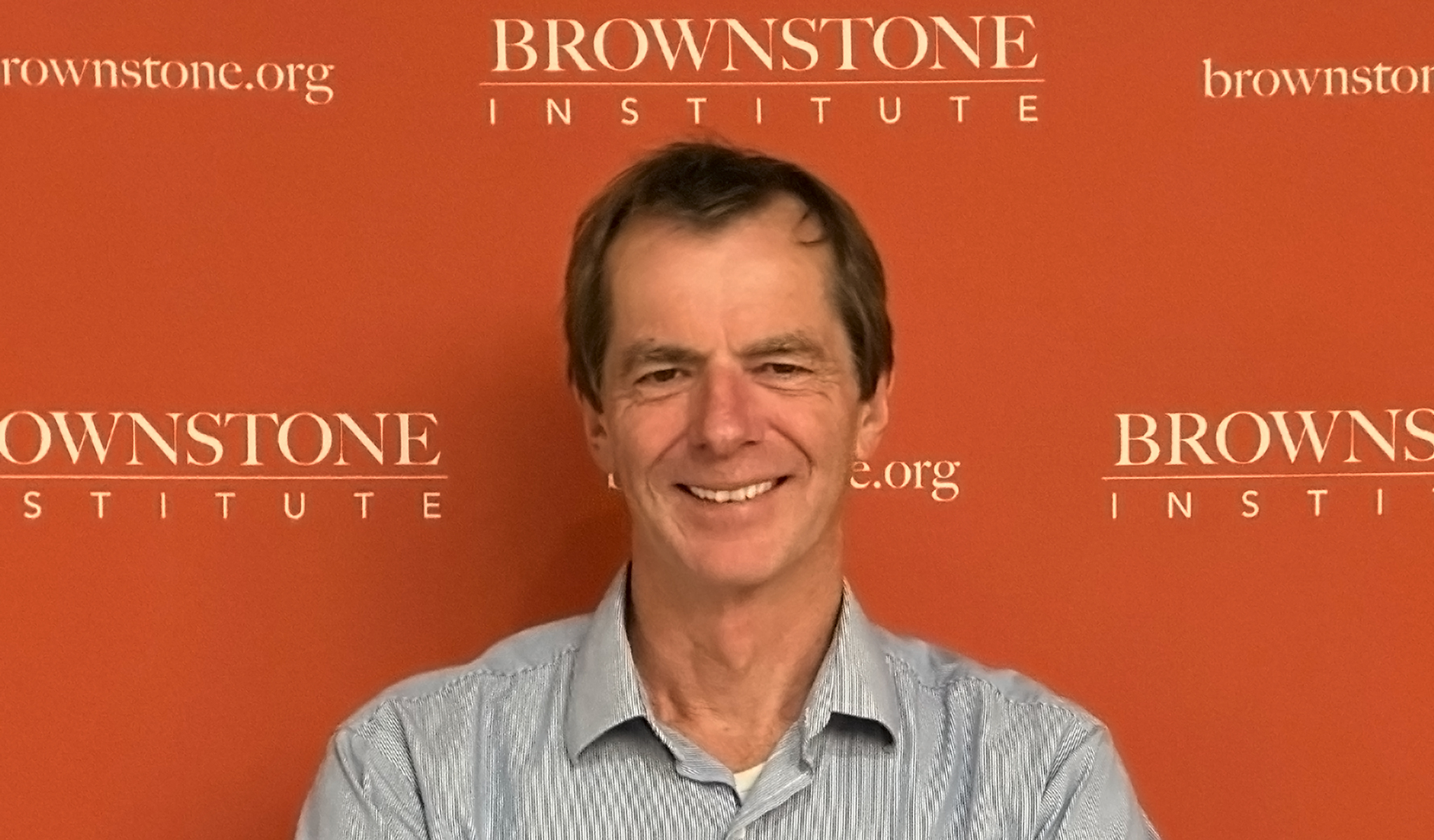In a former role I had a boss who lied a lot. The lies were pure fantasy, but massive in scope and delivered with sincerity. They were very successful. This success was based on the reluctance of most people to consider that someone in a position of authority in a humanitarian organization would completely ignore any semblance of reality. People assumed the claims must be true, as fabricating information to that extent in those circumstances seemed to defy logic.
The principle of Really Big Lies is based on their being so divorced from reality that the listener will assume their own perception must be flawed, rather than the claims of the person speaking to them. Only an insane or ridiculous person would make such outlandish claims, and a credible institution would not employ such a person.
Therefore, given that the institution was apparently credible, the statements must also be credible, and the listener’s prior perception of reality therefore flawed. Lesser lies, by contrast, are likely to be perceived as sufficiently close to known reality to be provably wrong. Inventing truth can be more effective than bending it.
Early on, my colleagues would ask me to “do something about it,” as they still thought the organization should not lie to our source of funds, to partners, or to the audience of scientific meetings. Over time many of these same colleagues learned that integrity was a poor career choice, whilst good team players supported false narratives. Though I had always been aware of the fragility of integrity, this place taught me a lot about human behavior. In the end, only a minority refused to participate. It was excellent preparation for COVID-19 and the evolving credibility crisis of global public health.
A Template For Deception
People working in the global health industry want a decent income, they want their children to have reliable healthcare and a good education. They have important holidays to attend, bosses to impress and subordinates to support. Some time ago when global health was concerned with supporting a human rights and pro-community narrative, success meant advocating loudly and sincerely for community control, informed consent and the importance of patient-centered care.
As the Declaration of Alma Ata stated in 1978, and the WHO attempted to reiterate in 2018: “The people have the right and duty to participate individually and collectively in the planning and implementation of their health care.” Unequivocal, clear, but a poor way to realize rapid financial return on a funder’s investment.
COVID-19 opened the way for a much sought-after pandemic future. The new public health response trialed with this outbreak was far more attractive to investors with its centralization, and commoditization with vast opportunities for future growth. The excellent COVID-19 wealth shifts from the masses to the few have justified decades of patient investment in public-private partnerships that have broken down the arms-length approach global health once had with conflicted corporate interests.
Truth was the only persistent obstacle to corporatizing and monetizing global public health, but COVID-19 proved that this impediment to progress can be expunged through consistent lying and vilification of truth-tellers backed by a well-managed behavioral psychology campaign. This pandemic response provided a template not only for vastly-increased corporate income, but for job certainty and expansion of opportunity for the army of mostly-Western bureaucrats and health professionals filling the offices, meeting rooms and business-class seats of its implementing organizations. COVID-19 made corporate colonialism respectable again.
COVID-19 and its Alternate Reality
Superficially, COVID-19 appears a poor disease choice to facilitate a societal reset. Death is heavily concentrated in old age, over 75 years in Western countries. Severe cases are generally confined to those with life expectancies already shortened by metabolic diseases and obesity. Countries that failed to implement measures to restrict and impoverish their people, such as Sweden and Tanzania, had COVID-19 outcomes similar to those that opted for lockdowns and other trappings of medical fascism.
Average hospital admissions in the UK and US declined during the pandemic; not what the public expects when a pathogen wreaks havoc. Lockdowns devastated economies, increased infectious disease burdens and promoted widespread malnutrition. Covid vaccines have also been unhelpful as high vaccination rates failed to noticeably impact transmission. The reported mortality and adverse events associated with these vaccines are higher than all other vaccines combined over 30 years.
Thus COVID-19 provided a hard bucket of facts to deal with, but this is just the situation in which Really Big Lies can work. These were needed both to fool the public, and to provide a structure within which health professionals could implement the policy.
A Short List of Really Big Lies
Largely by playing on fear, divorcing data from context, and disseminating false information widely and incessantly, a whole new belief system has been constructed in public health to replace the evidence-based orthodoxy of former years. Reality has been replaced with dogma so divorced from any basis in fact that it is easier to go with the propaganda than deal with the dissonance that would otherwise result. The public is told, broadly, that the response to COVID-19 has been orthodox, that the harms of the past two years are due to a virus and not lockdowns, and that far more money must now be purloined for mass testing and vaccines to stop this from happening again.
For healthcare workers to keep this consistent line, it has been necessary to introduce an array of new dogmas equally divorced from reality and contradictory to what they were taught, and their organizations proclaimed, prior to the 2020 WHO pandemic guidelines. They must now believe:
- Disease burden should be measured in raw mortality, and not include metrics such as life-years lost. Hence an 85-year-old dying of a respiratory virus is equivalent to a 5-year-old dying of malaria in terms of burden and urgency.
- Medium and long-term harms due to poverty and reduced healthcare access should not be considered when assessing the value of an intervention. A modeled effect on the target pathogen is the only relevant metric.
- It is appropriate to misinform the public on age-related risk and relative disease burden and better to instill fear in order to achieve compliance with public-health directives.
- Growth of viral transmission in a community follows an exponential curve, rather than a steady deceleration (e.g. Gompertz curve) as the proportion of recovered (immune) people accumulate.
- Banning students from school for a year protects the elderly, while not locking in generational poverty.
- Cloth and surgical masks stop aerosolized virus transmission, and all meta-analyses of randomized control trials (that show minimal or no effect) should be ignored.
- Post-infection immunity to respiratory viruses is expected to be poor and short-lived, whilst vaccines to a single viral protein will somehow produce much stronger immunity.
- Immunity to viruses is best measured by antibody concentrations rather than T-cell response or clinical outcomes.
- Informed consent for vaccination should not include information on demonstrated risks, as this could promote ‘vaccine hesitancy.’
- It is appropriate to give a new gene-based pharmaceutical class in pregnancy that crosses the placenta without any pregnancy trial data, toxicology studies, or long-term outcomes data (in anyone).
- Irrespective of the Convention on the Rights of the Child “In all actions concerning children… the best interests of the child shall be a primary consideration” – it is appropriate to inject children with drugs lacking long-term safety data in order to protect the elderly.
- Pandemics have become more frequent and more deadly, despite the historical record, and the progress of modern medicine, indicating quite the opposite.
The above is all either unethical or clear nonsense, contradicted by prior public health orthodoxy. If these positions were only slightly wrong, they would promote internal argument and debate. However, they are so far beyond the pale that to question them means questioning a whole system of authority and learning, the entire current hierarchy of public health. This would risk employment and the support of colleagues, and cause avoidable stress. Holding to the new dogma enables a positive career path and financial security, as did siding with the Inquisition centuries ago. Success requires loyalty, and loyalty must be demonstrated by repeating dogma so that the outside world can see only consensus.
Abandoning Ship
Standing on 2019 principles and practice, refuting the above falsehoods, has been sufficient for health practitioners to be denigrated and forced out of employment in many Western countries. This is the clear mark of fascism and is making the international public health field a specific threat to the health and welfare of others. It is, unfortunately, a return of public health to the fascist realm, not a novel phenomenon. It is spreading malnutrition, driving young girls into forced marriage and sexual slavery, increasing malaria and tuberculosis, and wrecking the credibility of legitimate health programs such as routine childhood vaccination in low-income countries.
Whilst growing their industry’s finances, public health professionals are degrading themselves and betraying society. The betrayal, based on incessant lying, is something for which they will inevitably face consequences. In our lying, we have betrayed our constituency, as we did previously over eugenics and forced sterilization. It is a poor record and one to be ashamed of. Eventually, even the most dedicated followers will begin to question the sense of putting on a mask at a restaurant door only to remove it 10 steps later, or vaccinating vast populations against a disease to which they are already immune whilst they die of other readily preventable diseases.
The way out of this is simply to refuse to lie, or to cover for the lies of others. This may seem self-evident, but clearly it is not. The relatively high salaries and public esteem that health professions have experienced may make it harder to step away, but truth will catch up, one day, to those that don’t. Cults eventually decay as leaders become drunk on power and the most dedicated devotees struggle to remain obsequious. It is far better to leave early and live with dignity.
Epilogue
The teller of very big lies from my former workplace was only respected by those who also lied, and those who remained fooled. It’s a poor substitute for dignity. Those working to promote the current spate of lies in public health, or keeping their heads down while these lies harm others, will have to decide whose respect is worth holding. One can fool many, and sometimes even oneself, but in the long run one can never escape truth.
Join the conversation:

Published under a Creative Commons Attribution 4.0 International License
For reprints, please set the canonical link back to the original Brownstone Institute Article and Author.









